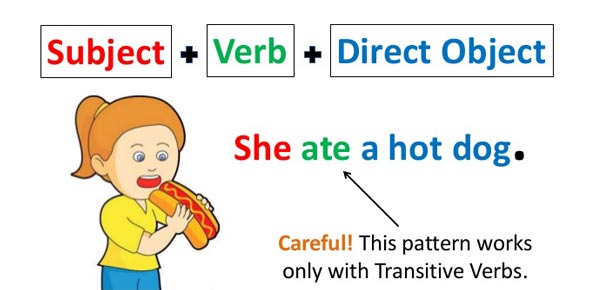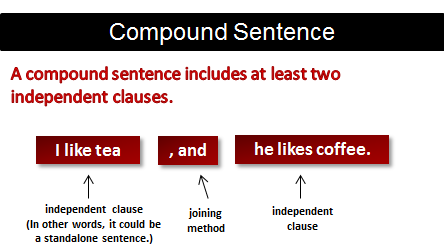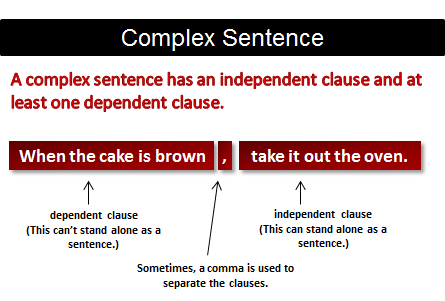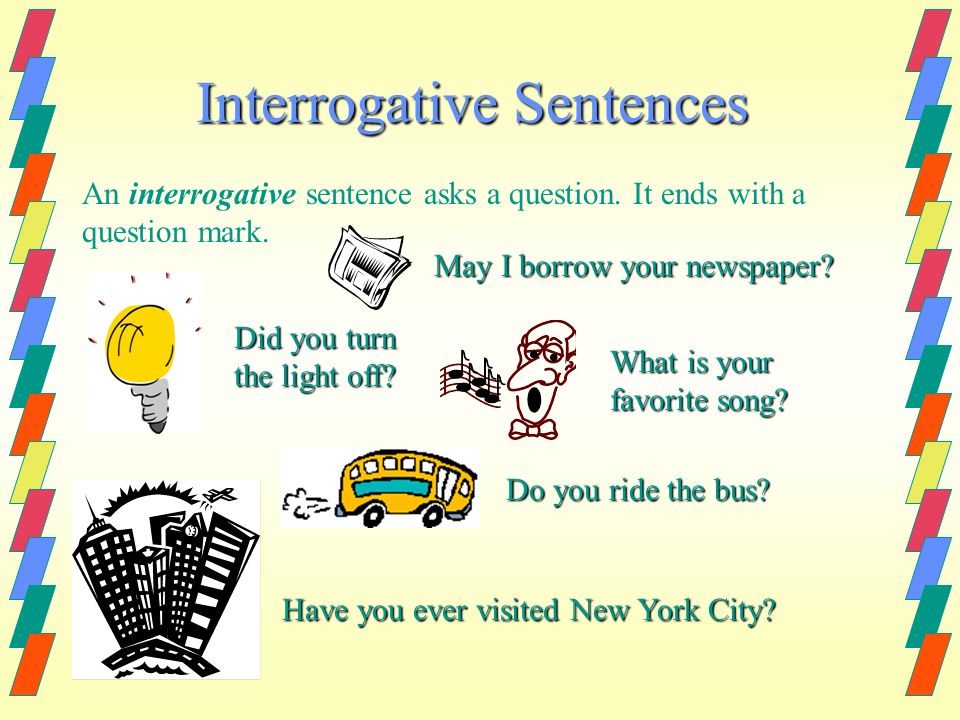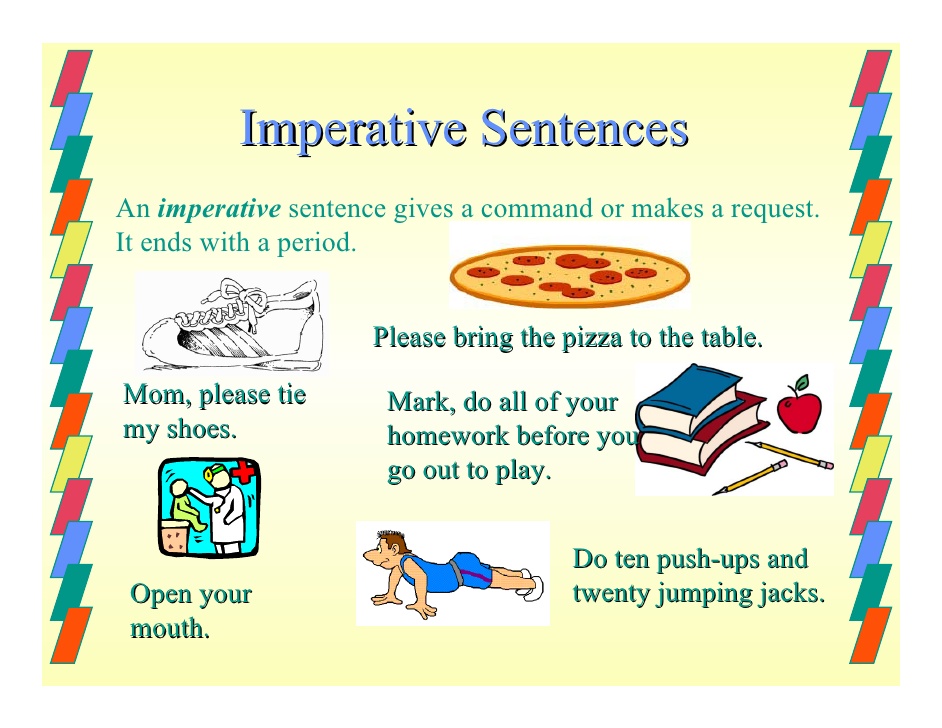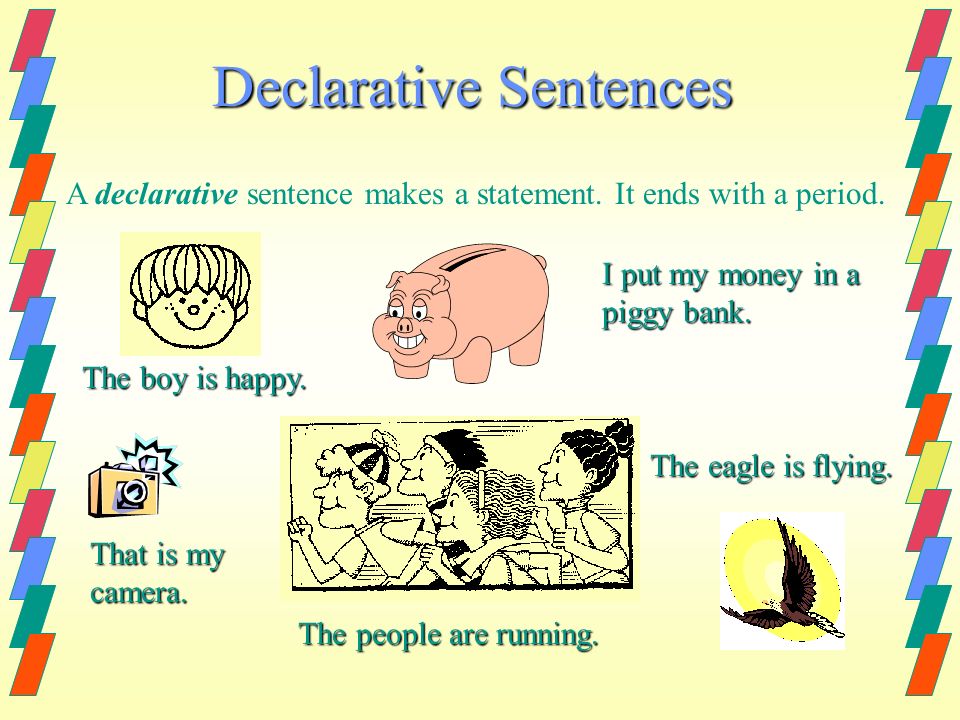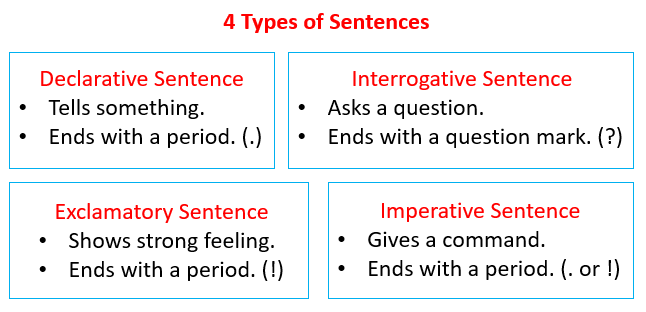To understand a compound complex sentence, let’s review compound sentences and complex sentences.
A compound sentence is made of two simple sentences joined by a conjunction.
A complex sentence is made of a simple sentence and a dependent, or subordinate, clause (has a subject and a verb but does not express a complete thought.
So, a compound complex sentence is made up of more than one sentence joined by a conjunction, and at least one of those sentence is complex. In other words, it is a compound sentence with a dependent, or subordinate clause.
In these examples, the dependent, or subordinate, clause is underlined.
1. When I grow up, I want to be a ballerina, and my mom is proud of me.
2. I will get to watch television, but first, I have to clean up the dishes after we finish eating.
3. We won the game, but my uniform was muddy because it rained the entire time.
4. After our trip to the beach, school started back, and I was excited to see my friends.
5. Sarah cried when her cat got sick, but he soon got better.
6. The sun is shining through the clouds, so I think that we can go swimming.
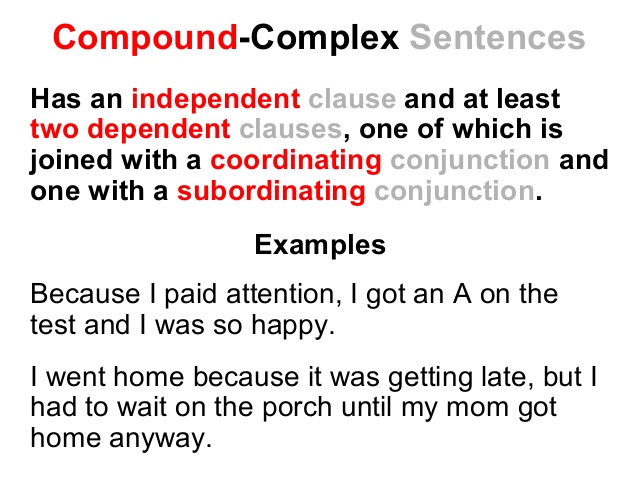
for more information look these video https://www.youtube.com/watch?v=Hnmm57B0JgQ
